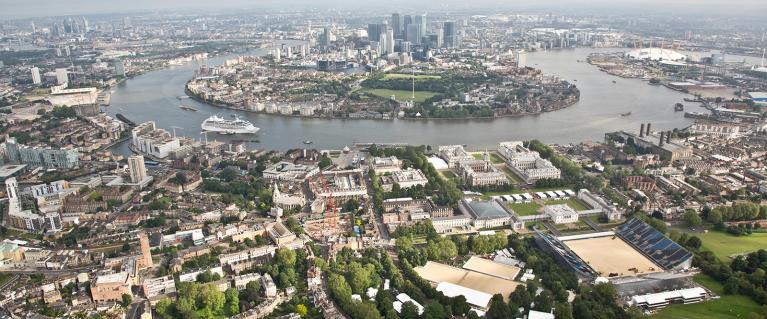
Location analysis
Location analysis examines where people live and work, where businesses decide to locate, and the infrastructure and land which connects them.
In the GLA Economics team we provide the latest information and data on London’s economic development and interpret how this may affect policy in the capital.
What is location analysis?
Our reports, working papers and current issue notes include analysis of the latest information and data on the economic development of London. We interpret how this may affect policy for the capital in relation to:
- the centres and clusters of economic activity
- land use and the urban environment
- housing, transport and commuting
- energy, connectivity and other urban infrastructure
Our analysis aims to understand the nature, extent, causes and consequences of economic developments across London and its relationship with the wider region and the rest of the country. Our work supports three mayoral strategies: the London Plan, the Economic Development Strategy and the Transport Strategy [links].
Our latest publications are described below.
Work and life in the Central Activities Zone
This working paper examines the economic and demographic life of the Central Activities Zone, Northern Isle of Dogs and their fringes. Some of the findings include:
- the Central Activities Zone, northern part of the Isle of Dogs and their fringes produced output of just over £179 billion in 2012, accounting for nearly 55 per cent of London’s output and just over 12 per cent of UK output
- the top five sectors of employment in this combined area in 2013 were: professional, scientific and technical; financial and insurance; information and communication; business administration and support services; accommodation and food services
- distinct clusters of employment by sector type were discovered across this area
- employment stood at 2.14 million in 2013 – a rise of 14.3 per cent on 2009 – meaning this area accounted for around 45 per cent of London’s employment
Read the full report.
View similar publications.
The science and technology category in London, March 2015
This working paper builds on a definition of the ‘Science and Technology’ category recently produced by ONS London statisticians. It analyses this sector’s development across London and the Greater South East. Some of the findings include:
- in the ten years to 2013, there has been a rise of 129,800 Science and Technology category jobs in the Greater South East – London accounted for the vast majority of this increase
- the fastest growth in this period was in the Digital technology sub-category (where employee jobs increased by 29 per cent)
- within London Boroughs, Camden has the highest proportion of Science and Technology category employees in total (at 32.9 per cent
Read the full report.
View similar publications.
Migration and commuting, October 2014
This working paper looks at the trends in domestic migration and commuting into and out of London. Some of the findings include:
- the migration data show that contrary to popular perception, London has a constant net outflow of domestic migrants to other regions, the majority of whom move to neighbouring regions
- London is generally a net supplier of people in managerial and professional occupations to the rest of the UK
- compared to Londoners who work in London, in-commuters are more likely to work full-time, be in professional or managerial jobs, and work in one of the principal sectors of the London economy, such as financial services. In-commuters account for just under a fifth of employment in the capital
Read the full report.
View similar publications.
Growing Together II: London and the UK economy, September 2014
This report sets out the economic forces that are likely to drive London’s economy. It seeks to better understand the relationship between London and the rest of the UK. Some of the findings include:
- London’s success is positive for the UK as a whole
- constraining London’s growth (through reduced infrastructure expenditure, for example) will reduce UK growth and threatens London’s international competitiveness – most likely benefiting other countries (not the rest of the UK)
- attempts to ‘share out’ London’s business activities across the UK, by whatever means, would most likely lead to businesses losing the benefits of locating in London; as a result they’d likely relocate to another international city – not the rest of the UK
Read the full report.
View similar publications.
Economic evidence base, May 2010
This document aims to provide an economic evidence base to support the three Mayoral strategies that have recently been revised: the London Plan, the Economic Development Strategy and the Transport Strategy.
The evidence base's purpose is to provide an understanding of the economic forces impacting on London and some of the main issues facing London. As a result, as well as looking at London's strengths, the evidence base looks at some of the risks to London's future growth and some of the main socio-economic issues facing the capital.
Read the full report.
View similar publications.
Need a document on this page in an accessible format?
If you use assistive technology (such as a screen reader) and need a version of a PDF or other document on this page in a more accessible format, please get in touch via our online form and tell us which format you need.
It will also help us if you tell us which assistive technology you use. We’ll consider your request and get back to you in 5 working days.